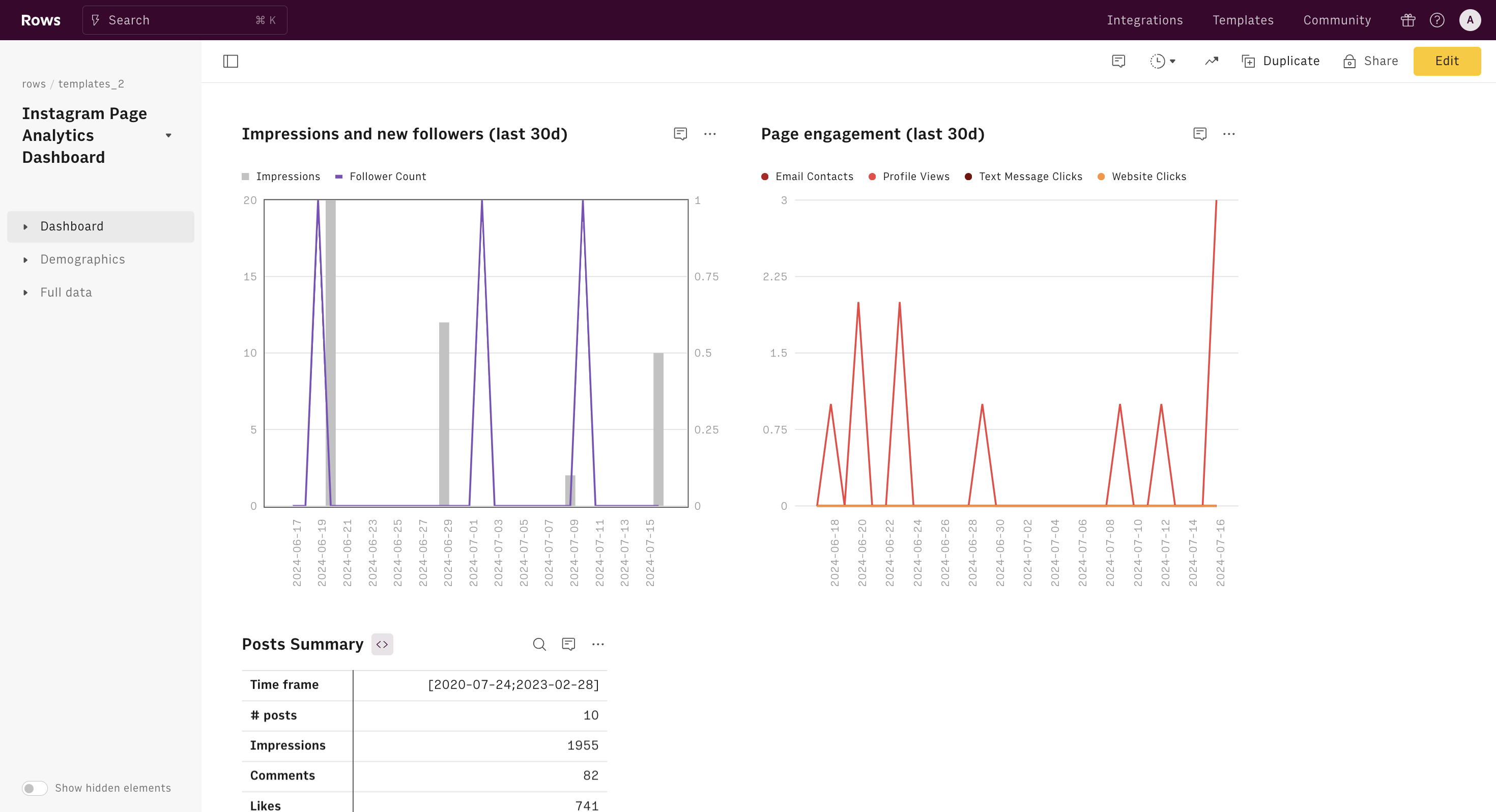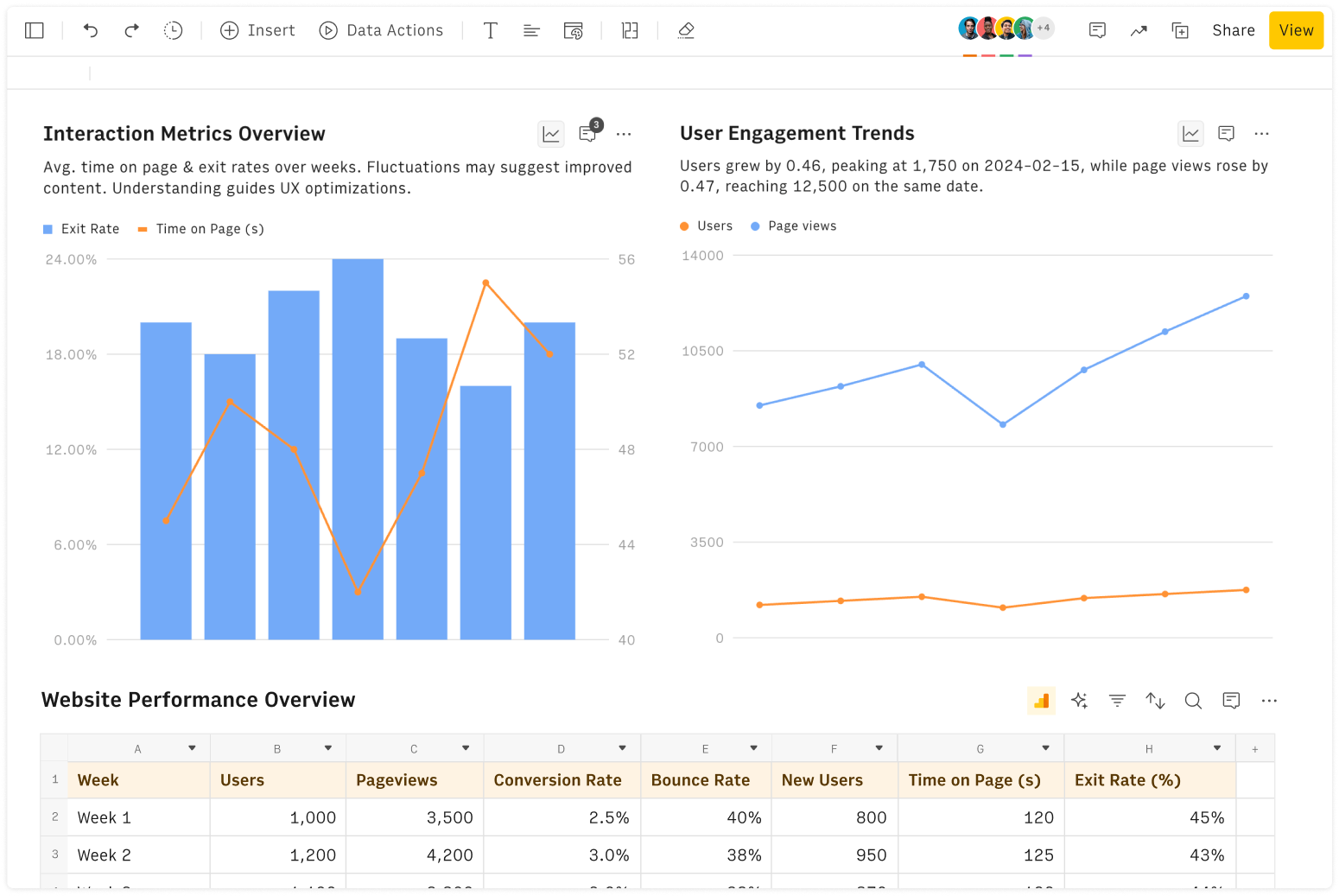Brief History of the Nobel Prize
The Nobel Prize, established by Alfred Nobel's will in 1895, has been awarded annually since 1901. It recognizes outstanding achievements in various fields and is considered one of the most prestigious awards globally. Each Nobel Prize winner is celebrated for their contributions to humanity in categories ranging from Peace to Physics.
How to Use the Nobel Prize Winners Lookup
To use our Nobel Prize Winners Lookup all you need to do is enter a year and select a category: the tool interrogates the official Nobel Prize database via API to return detailed information about the Nobel laureates for that period.
💡 This Nobel Prize Winners Lookup is built with Rows, a modern spreadsheet editor integrated with 50+ data sources. It uses Rows' native GET function to send an HTTP request to a defined endpoint. All from the spreadsheet grid.
Interested in testing more complex APIs? Have a look to our HTTP Tester.
Nobel Prize Categories
The Nobel Prize is awarded in six main categories: Peace, Literature, Chemistry, Physics, Physiology or Medicine and Economic Sciences.
Each category honors individuals or organizations that have made significant impacts in their respective fields. Learn more about the Nobel Prize categories and their importance in advancing human knowledge and progress.
Criteria for the Nobel Award
The Nobel Prize is awarded based on criteria set out by Alfred Nobel in his will. Nobel specified that the prizes should be given to those who "have conferred the greatest benefit to humankind." Each prize category has specific criteria:
Peace: Awarded to the person or organization that has worked most effectively to promote fraternity between nations, the abolition or reduction of standing armies, and the establishment and promotion of peace congresses.
Literature: Given to an author, from any country, who has produced "in the field of literature the most distinguished work in an idealistic direction."
Chemistry, Physics, and Physiology or Medicine: Awarded for discoveries or inventions that have significantly advanced their respective fields and have practical applications that benefit humanity.
Economic Sciences: Although not originally outlined by Nobel, this prize follows similar principles, recognizing contributions that have profoundly enhanced our understanding of economics and have had a significant impact on society.
Nobel Prize committees in each category review nominations, conduct thorough evaluations of the candidates' work, and make the final selections based on these principles.
Nobel Peace Prize and Nobel Prize Literature
The Nobel Peace Prize is awarded to individuals or organizations that have made significant efforts to promote peace, human rights, and democracy, the Nobel Peace Prize is one of the most globally recognized accolades.
Notable laureates include Nelson Mandela (1993) who was honored for his work to dismantle apartheid in South Africa and his role in fostering racial reconciliation. Malala Yousafzai (2014), recognized for her activism for girls' education in Pakistan, becoming the youngest-ever Nobel laureate and former POTUS Barack Obama (2009), awarded for his efforts to strengthen international diplomacy and cooperation between peoples.
The Nobel Prize in Literature celebrates authors, poets, and playwrights whose work has enriched the literary world and expanded our understanding of the human condition. Renowned laureates include Gabriel García Márquez (1982), Celebrated for his masterful storytelling and the magical realism that brought Latin American culture to life. Toni Morrison (1993), honored for her powerful novels that explore African American life and history with profound depth and lyricism and Kazuo Ishiguro (2017), recognized for his novels of great emotional force, exploring themes of memory, time, and self-delusion.
These authors have profoundly influenced literature and culture, providing readers with new perspectives and insights.
Nobel Prizes 2023
The Nobel Prizes for 2023 have been awarded to the following people:
Peace: Narges Mohammadi for her fight against the oppression of women in Iran and her promotion of human rights and freedom
Literature: Jon Fosse for his innovative plays and prose which give voice to the unsayable
Physics: Pierre Agostini, Ferenc Krausz, and Anne L’Huillier for their work on experimental methods that generate attosecond pulses of light for the study of electron dynamics in matter
Chemistry: Moungi G. Bawendi, Louis E. Brus, and Aleksey Yekimov for the discovery and synthesis of quantum dots
Physiology or Medicine: Katalin Karikó and Drew Weissman for their discoveries concerning nucleoside base modifications that enabled the development of effective mRNA vaccines against COVID-19
Economic Sciences: Claudia Goldin for her work on advancing the understanding of women’s labor market outcomes







